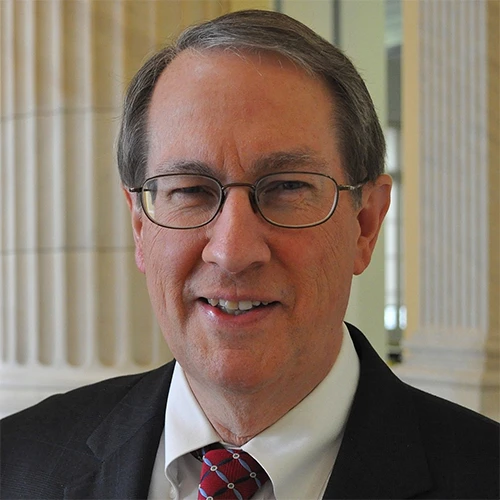In November, I wrote about the opportunity for Congress to find common ground on transparency issues, including bringing greater transparency to the third-party litigation funding (TPLF) industry. TPLF – and its implications for national security and the U.S. judicial branch – should be a major concern in all civil litigation, but it is particularly relevant for those concerned with intellectual property due to the industry’s significant investment in backing patent infringement litigation. I was pleased to see that in late December, a group of 14 state Attorneys General sent a joint letter to Attorney General Merrick Garland, requesting information about what the Justice Department has done, or is currently doing, to ensure our justice system is protected from TPLF-driven foreign interferenceA proceeding, formerly conducted before the USPTO Board of Patent Appeals and Interferences, to determine priority of invention between applications that appear to cover the same invention. Interferences occurred under the first-to-invent system that was changed to first-inventor-to-file by the America Invents Act of 2011..
The letter raises a number of valid concerns, including that foreign countries like China and Russia, “could use TPLF to fuel targeted lawsuits designed to weaken U.S. national defense companies in the business of protecting our national security interests,” and that “costly litigation aimed at sabotaging major energy sectors that are vital to our economy poses a direct threat to our economic security interests and global independence.” Additionally, the letter highlights the issue of “cases being funded to target specific individuals or businesses, or simply to further backlog our courts at the expense of the American taxpayers.”
As it relates to patent infringement litigation, it is easy to see how foreign entities can weaponize meritless infringement claims to drain competitor resources, stall competitors’ innovative progress, and even gain access to sensitive information through legal proceedings.
At the core of the current TPLF predicament is that right now – we don’t know what we don’t know. Without the mandatory disclosureOne of the primary objectives of the patent system. In return for the government-granted right to exclude that is embodied in the patent, the inventor must disclose to the public through his patent the invention for which protection is sought. Inventors unwilling to disclose their invention to the public may instead opt for trade secret protection. of funding agreements, we can’t see the complete picture. We know that foreign entities are investing in U.S. litigation, but we have yet to uncover the full scale of the investment or its patterns, including targeted industries and specific companies that may be repeatedly sued in bad faith.
The state Attorneys General do not recommend specific solutions. Instead, they requested additional information from the DOJ. However, the U.S. Chamber of Commerce’s Institute for Legal reform has been banging the drum on national security threats related to TPLF and in their recent report on the issue, they identify a number of judicial, legislative, and agency driven solutions including:
- Requiring disclosureOne of the primary objectives of the patent system. In return for the government-granted right to exclude that is embodied in the patent, the inventor must disclose to the public through his patent the invention for which protection is sought. Inventors unwilling to disclose their invention to the public may instead opt for trade secret protection. of third-party litigation funding in all civil cases.
- Requiring funders to disclose all litigation funding from a foreign government and that government’s role in the litigation to other parties, the court, and the U.S. government.
- Strengthening the Foreign Agents Registration Act (FARA) to require attorneys who receive funding from a foreign government to register under FARA even if they do not represent that government.
- Requiring the U.S. Department of Justice to investigate if a litigation funder fails to conduct due diligence into foreign government involvement with their investors or partners that would have shown a level of involvement sufficient to trigger FARA registration.
- Enacting the Litigation Funding Transparency Act, which would require plaintiffs’ attorneys to disclose TPLF agreements in multi-district litigation proceedings and federal class action lawsuits.
Not only is enacting solutions that limit TPLF abuse the right thing to do, the Institute for Legal Reform also points out it is overwhelmingly popular. Almost 70% of voters support disclosureOne of the primary objectives of the patent system. In return for the government-granted right to exclude that is embodied in the patent, the inventor must disclose to the public through his patent the invention for which protection is sought. Inventors unwilling to disclose their invention to the public may instead opt for trade secret protection. of third-party litigation funders that have invested in a lawsuit, including 60% of Republicans, 71% of Democrats, and 74% of Independents.
TPLF requires swift action from Congress, the judiciary, and federal agencies. I was glad to see this group of Attorneys General push for answers from the Justice Department and I look forward to seeing the response.

